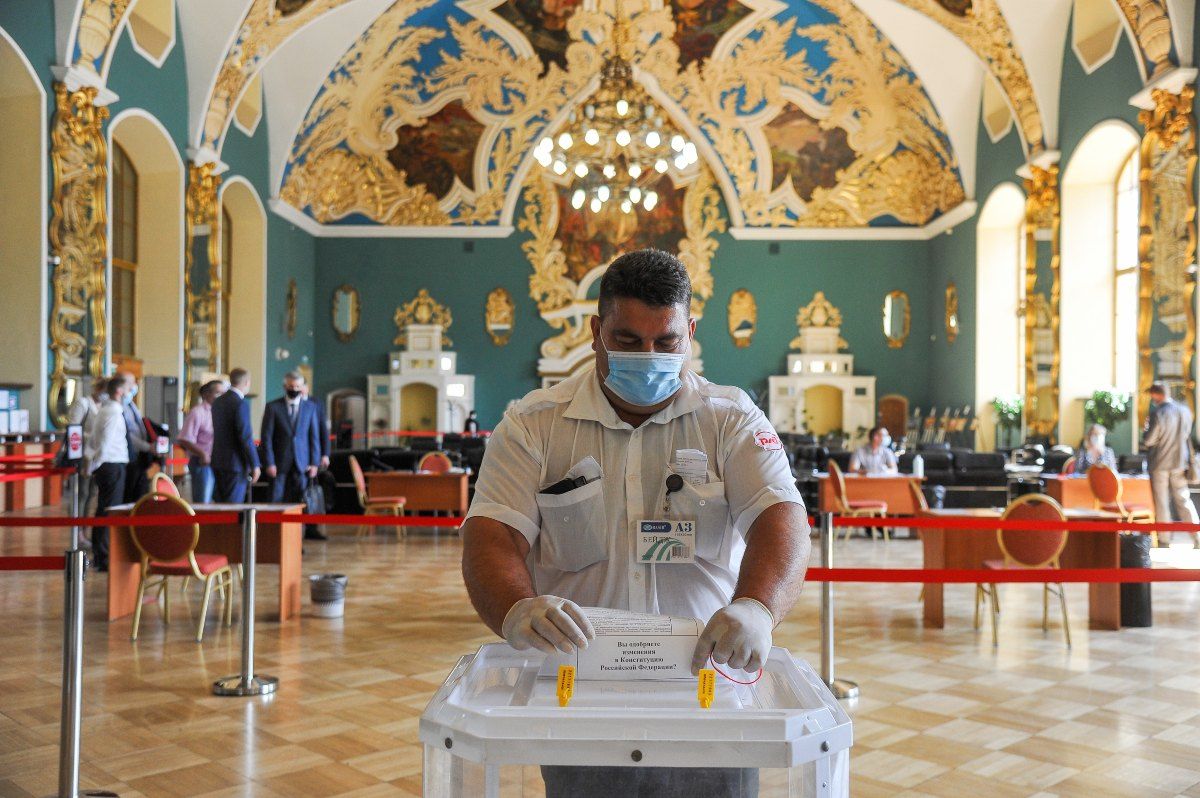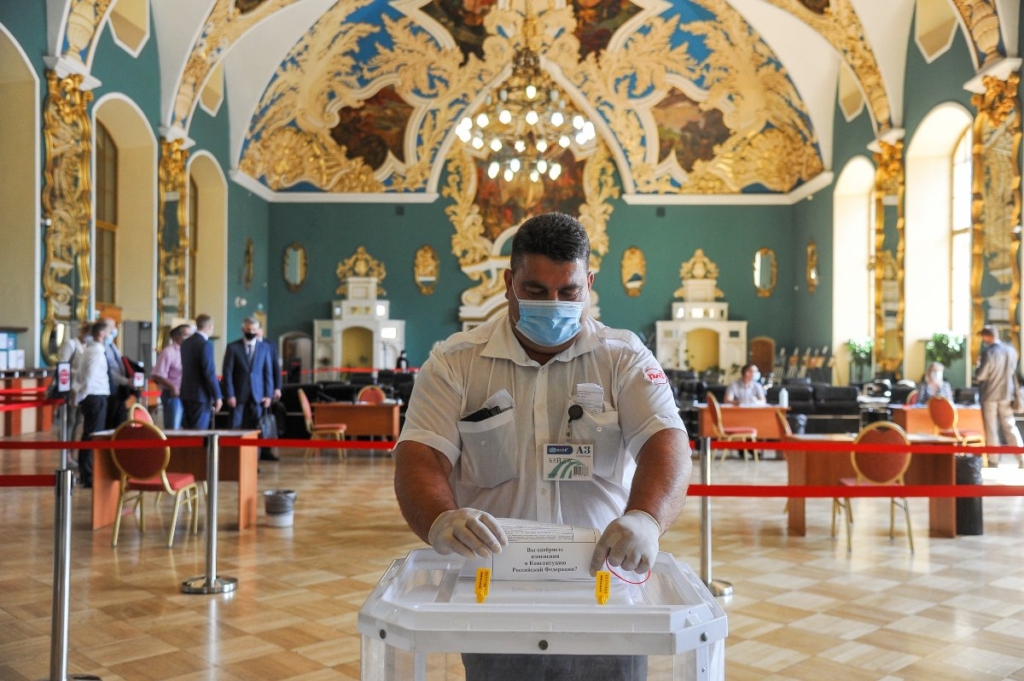
Constitutional referendum delivers big win for Putin
The outcome of Russia’s constitutional referendum was exactly as predicted and the stage is now set for Vladimir Putin to remain president through 2036. In the end, neither coronavirus nor an economic crisis was a problem for Kremlin planners, and 77.9 percent of Russians voted in favor of the constitutional changes (an even higher vote share than Putin received in the 2018 presidential election). It was all made possible by a voting process outside of existing electoral law, a divided and inactive opposition, and widespread apathy.

The results
They likely opened the champagne in the Kremlin as the results came in Wednesday evening. Officials surpassed even their own electoral targets set (in February RBC reported (Rus) the Kremlin wanted 60 percent turnout with 70 percent ‘yes’ votes). The final result was not only higher, at 76.7 percent, but 68 percent of the electorate took part, meaning an absolute majority — 58 million of Russia’s 109 million voters — backed the constitutional changes.
- How did the Kremlin achieve this? The main oddity of the referendum was its unique legal status: a popular vote was not needed to pass the constitutional changes (two-thirds support in parliament would have sufficed), but Putin wanted additional legitimacy for his plans to rule through 2036. The unusual process was christened an ‘all-people vote’, a form of legal innovation that allowed the Kremlin to circumvent the strict norms that usually govern elections and referendums.
- This paved the way for a huge variety of different electoral frauds. Firstly, voting took place over a week, making normal election monitoring impossible and helping to boost turnout despite the pandemic. Secondly, it allowed intense pressure on voters — officials actively campaigned for a ‘yes’ vote, state pollsters published exit polls while voting was still ongoing, and the first results were announced at 14:30 — seven hours before voting ended. Similarly, normal election law would never have permitted a simple ‘Yes/No’ question to approve 206 constitutional amendments. The final results show the the most falsification in the history of voting in post-Soviet Russia, according to election analysts.
- The official results contrast with exit polls carried out by opponents of the amendments. In Moscow, they showed 54.9 percent voted ‘no’ (the official figure was 34 percent), and 63.1 percent were against in St. Petersburg (officially, 18 percent).
A divided society
Despite the falsification, independent observers concede that — with the exception of major cities — Russians voted in favor of the changes. And the referendum did not lead to significant street demonstrations. In Moscow, under 500 people turned out Wednesday to protest.
- The country was split (rus) on the main amendment (‘resetting’ Putin’s presidential term count), according to experts. Denis Volkov at independent pollster Levada Center explained that the Kremlin successfully mobilized half of society, while the opposition was split. Much is explained by a dwindling appetite for protests. If there had been a charismatic organizer, people may have taken to the streets, according to Volkov. But there was no such person. Coronavirus also put people off protesting.
- Falling standards of living are a key driver of protest in Russia, but lockdown has warped the sensation of an approaching crisis, and state handouts ahead of the referendum (for example, 20,000 rubles ($280) for every child) were an important factor.
- Despite all this, the main goal of the vote — a new legitimacy for Putin —.was not necessarily achieved. Even before the amendment to ‘reset’ Putin’s term count was announced, 47 percent of Russians said (Rus) the main goal of the constitutional changes was to extend Putin’s rule beyond 2024, and they are unlikely to have been convinced. The current regime may appear durable, but it’s actually “susceptible to rapid changes caused by a series of accidents,” said political scientist Grigory Golosov.
Why the world should care For many, Putin’s political position looks more secure than ever. There is little to prevent him from ruling through 2036, and it will be easier to ‘win’ elections (Federation Council head Valentina Matvienko has already suggested holding future elections along the lines of the referendum). But this shouldn’t be overstated: Putin’s legitimacy is now more fragile than it has been for two decades, and Russia’s political elite understands this very well.



